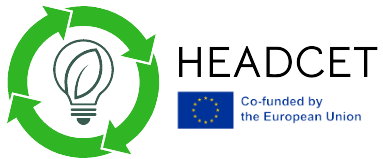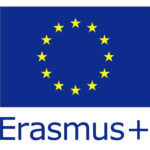HEADCET Project
The project “Higher Education pArtnerships for sustainable local Development through Circular Economy and social innovation” (HEADCET) supports Higher Education Institutions (HEIs) of Argentina, Paraguay, and Chile in tackling the challenges of sustainable development by enhancing their relevance for the labour markets and the society at large.


The project specifically focuses on Circular Economy (CE), Social Innovation (SI) and Sustainable Development (SD) which are strongly interrelated in Latin American (LA) Countries and are considered crucial to foster a more sustainable growth and to identify new jobs opportunities.
Circular Economy
Social Innovation
Sustainable Development
The rationale of the project lies in the acknowledgement that universities are today increasingly considered as crucial actors in innovation ecosystems since they can contribute to sustainable growth and wellbeing through the whole set of their missions: teaching, research and third mission (or extension services – public outreach).
Social innovation practices are particularly relevant in this context. Social innovation aims at engaging all universities’ local stakeholders to meet a more inclusive society, by creating new social relations among local communities and by including the more vulnerable groups in empowering processes. Working on these fields, HEADCET contributes to innovate third mission approaches in Latin American HEIs and to make them more open to their local communities.
At the same time, HEIs are also increasingly committed in supporting initiatives towards green growth and the circular economy. The integration of Circular Economy (CE) principles into higher education programs can be seen as an important step in contributing to the creation of new jobs and to respond at the emerging needs of the production sector.
In this regards, outermost importance is given also to Education for Sustainable Development (ESD) which is recognized as an integral element of Sustainable Development Goal (SDG) 4 on quality education and a key enabler of all other SDGs. ESD aims to develop competencies that enable and empower individuals to reflect on their own actions by considering their current and future social, cultural, economic and environmental impacts from both a local and a global perspective.
Project objectives

Support
Higher Education Institutions (HEIs) of Argentina, Paraguay, and Chile in tackling the challenges of sustainable development by enhancing their relevance for the labour markets and the society at large.
Strengthen
the skills and competencies of Latin-American HEIs on sustainable development and circular economy.


Foster
university’ engagement through multi-level governance and partnerships for sustainable development and circular economy.
Improve
the employability of HEI’s graduate students and boost job matching in the field of sustainable development and circular economy.


Stimulate
regional and international networking cooperation of HEIs and exchange of good practice.
Project target groups

|| Students (enrolled, graduate, PhD)
- Participation in HEIs third mission activities
- Increase of the educational offer
- New job opportunities
- Better employability
- Faster career development path
|| Researchers
- Participation in HEIs third mission activities
- Strengthening of skills and competencies on CE and SI
- Development of project design skills within COLLs
- Better research environment based on qualified international cooperation networks
- Availability of well equipped spaces
|| Professors
- Skills and competencies upgrade
- Updated curricula/courses
- Stronger regional and international networks and relations
- Availability of well equipped spaces
- Enlargement of the third mission activities dimension
|| SMEs
- Stronger connection with HEIs
- Participation in the design of new/updated curricula/courses/job profiles
- Access to knowledge and practices on CE and SI
- Participation in pilot projects
- Faster and better recruitment processes (internships)

Impact and effects
|| Short-term effects
- Increase LA HEIs institutional capacity for engagement services to better interact with local stakeholders thanks to the development of strategic plans to manage these types of activities.
- Increased level of collaboration between LA HEIs staff and their local stakeholders
|| Medium-term effects
- Increase openness of LA HEIs to their regional ecosystems: the collaboration activities foreseen by COLLs will increase the levels of trust and social capital among LA HEIS and their local stakeholders who will improve their perception of the LA universities as institutional and educational references for CE.
|| Long-term effects
- Innovation of LA HEIs thorough the improvement of skills and competences of LA HEIs involved on sustainable development, social innovation and circular economy as well as to increase the overall students’ employability in the CE sector.
- Reinforcement of local, national, and international networks on circular economy which will produce a positive impact on society at large to meet a more sustainable and inclusive growth.
Work packages overview

UNIFI WP1
Project and Quality Management
UNIFI WP2
Services for University Engagement
UE-VARNA WP3
Curricula update/upgrade
UNIFI WP4
ODEC Pilot Design
PIN WP5
ODEC Pilot Set up
CEI WP6
COLLs Design
PIN WP7
COLLs Implementation
EUROSUR WP8
Students Employability & Social awareness
UNIFI WP9
CE innovation For SMEs
HEADCET will lead to the creation and promotion of a regional network on CE, SI and SD, enriched with EU partners, in order to take advantages of the opportunities under the Programme “Regional Coalition on Circular Economy in Latin America”.



